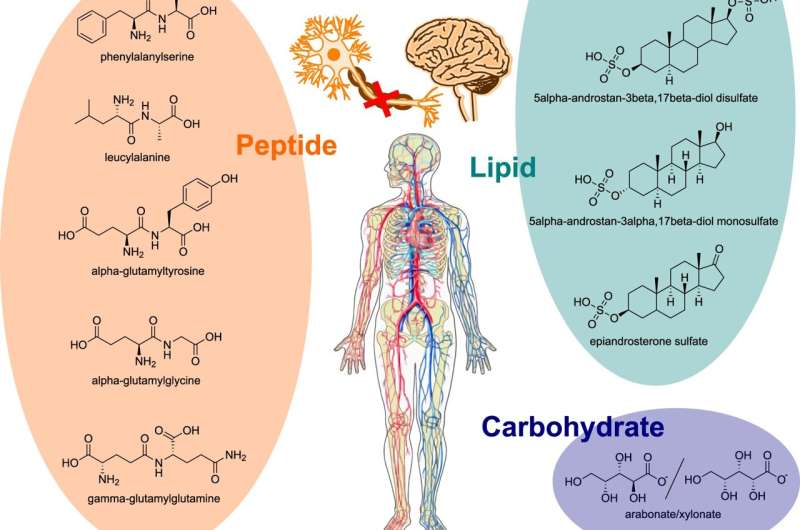This article has been reviewed according to Science X's editorial process and policies. Editors have highlighted the following attributes while ensuring the content's credibility:
fact-checked
peer-reviewed publication
trusted source
proofread
Novel blood metabolite biomarkers linked to Alzheimer's disease

Alzheimer's disease (AD) is the most common form of dementia and affects memory and thinking in the elderly. With a projected global increase in the number of affected individuals, reaching an estimated 152.8 million by 2050, health care systems are grappling with a substantial burden. There is an urgency to improve the understanding of its origin and find effective solutions for this growing public health issue.
In a large-scale study published in Molecular Psychiatry, University of Hawaiʻi Cancer Center scientists identified novel metabolite biomarkers, molecules produced during chemical reactions in our body's cells (metabolism), in blood for AD. That discovery will provide more clues to help in understanding of this disease.
"Our study provides new and valuable insights into the complex interplay of genetics, metabolites and the gut microbiota in our bodies relating to AD risk," said Lang Wu, senior corresponding author of the study, associate professor at the UH Cancer Center and director of the UH Pacific Center for Genome Research.
Researchers used genetic models to predict levels of 422 of the metabolites. They wanted to see if these metabolites were connected to the risk of AD. After studying, they found 14 specific metabolites that have links.
Findings of the current study could serve as a strong foundation for future experiments to validate the influence of the identified metabolites on AD development.
This is the most comprehensive study to date of its kind, involving 39,106 clinically diagnosed cases, 46,828 proxy AD and related dementia cases (participants who reported at least one biological relative affected with dementia), and 401,577 controls who do not have AD or dementia.
More information: Shuai Liu et al, Identification of blood metabolites associated with risk of Alzheimer's disease by integrating genomics and metabolomics data, Molecular Psychiatry (2024). DOI: 10.1038/s41380-023-02400-9




















